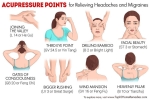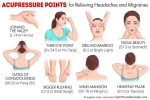Home »
Blog » Pain Management
| Stem Cell, PRP, Acupuncture in Queens & Long Island, New York
Pain Management | Stem Cell, PRP, Acupuncture in Queens & Long Island, New York
Myofascial pain syndrome (MPS) is a fancy way to describe muscle pain. It refers to pain and inflammation in the body's soft tissues. MPS is a chronic condition that affects the fascia (the connective tissue that covers the muscles). It may involve either a single muscle or a muscle group. In some cases, the area where a person experiences the pain may not be where the myofascial pain generator is located. Experts believe that the actual site of the injury or the strain prompts the development of a trigger point that, in turn, causes pain in other areas. This situation is known as referred pain.
Read more
Nerve Pain Caused by A Spinal Problem - If you’re like most people, you might be surprised to learn that the nerve pain in your foot may be caused by a problem in an area as far away as your lumbar spine (lower back). This type of foot pain occurs when an underlying medical problem related to your lumbar spine provokes sciatica symptoms along the large sciatic nerve in your leg. In turn, these painful symptoms may travel all the way down the nerve into your foot.
Read more
Figuring out my migraine triggers has been tricky. The condition is unpredictable, and triggers can change over time. With so much uncertainty, it can be quite exhausting to make basic decisions. There is always a looming threat that any food I eat or activity I decide to partake in might trigger a migraine episode. It’s frustrating. Often, my triggers don’t make much sense! They can be strange and random. It can also be that the smallest, most specific thing will set off a migraine that has been brewing for days. I never really know what to expect What I do know is that I need to be especially critical about my decisions so that I don’t push my luck and set off my migraine symptoms.
Read more
What Causes Musculoskeletal Pain? - The causes of musculoskeletal pain are varied. Muscle tissue can be damaged with the wear and tear of daily activities. Trauma to an area (jerking movements, auto accidents, falls, fractures, sprains, dislocations, and direct blows to the muscle) also can cause musculoskeletal pain. Other causes of pain include postural strain, repetitive movements, overuse, and prolonged immobilization. Changes in posture or poor body mechanics may bring about spinal alignment problems and muscle shortening, therefore causing other muscles to be misused and become painful.
Read more
Herniated discs can cause a variety of different symptoms, but those symptoms can vary depending on where the disc herniation occurs in your spine. Below, we take a closer look at the symptoms of herniated discs based on where they develop in your back. For those of you unfamiliar with the sections of your spine, it can be broken down into three segments: The cervical, thoracic and lumbar portions of your spine.
Cervical. The cervical portion of your spine involves the first seven vertebrae at the top of your spine near your neck.
Thoracic. Below the cervical spine is the thoracic portion of your spine, which is home to the next 12 vertebrae.
Lumbar. Underneath the thoracic spine sits the lumbar portion of your spine, which involves the next five vertebrae.
Read more
According to the American Headache Society, approximately 28 million Americans over the age of 12 experience migraines. A migraine is more than just a bad headache. Throbbing pain in your head is a common symptom, but it’s not only one that people experience. Migraines can also involve nausea, vomiting, diarrhea, sensitivity to light and sensitivity to sound. In some cases, you may even experience migraines with some of these symptoms but no head pain. Migraines can be a debilitating, chronic health condition. In some cases, stimulating pressure points on your body may help provide relief. If you press on the point, it’s called acupressure. If you use a thin needle to stimulate the point, it’s called acupuncture.
Read more
There are many reasons to be believed for getting RA symptoms worse but here are some of the important ones:
You're Having a Flare - Red, warm, swollen joints are inflamed. A flare is when inflammation in your body spikes. Your symptoms can get worse. You might also have a mild fever, fatigue, and feel sick all over. To treat a flare, your doctor might adjust your medicine to lower the inflammation. To feel better, get more rest and apply hot or cold packs to sore, swollen joints.
Read more
Nobody wants to go undergo an operation, especially if that surgery involves an intricate structure, like your spine. Although some conditions are best treated with a surgical operation, the vast majority will respond to preventative measures and conservative care. So if you want to avoid an operation on your spine, consider these five tips.
Avoiding Spine Surgery - Always listen to your physician’s specific advice when it comes to your exact condition, but these five tips can help keep back pain at bay and keep you off the operating table.
Read more
Experiencing the pain and discomfort of a headache is incredibly common. If you’re looking for a more natural way to treat your headache, you may want to think about acupressure and pressure points. Pressure points are parts of the body believed to be extra sensitive, able to stimulate relief in the body. Practitioners of reflexology, a discipline of Chinese medicine, believe that touching pressure points in a certain way can: Improve your health, Ease pain and Restore balance in the body.
Read more
Rub on Capsaicin - This is the stuff that gives chili peppers their heat. When you put it on your skin, it blocks pain signals. Capsaicin comes in creams, gels, and patches. One study found that people who used capsaicin cream daily for a month (along with other arthritis medications) had their arthritis pain eased by 57%. Before trying it, dab a little on first to make sure you’re not allergic.
Read more
Love this Post? Spread the World






















